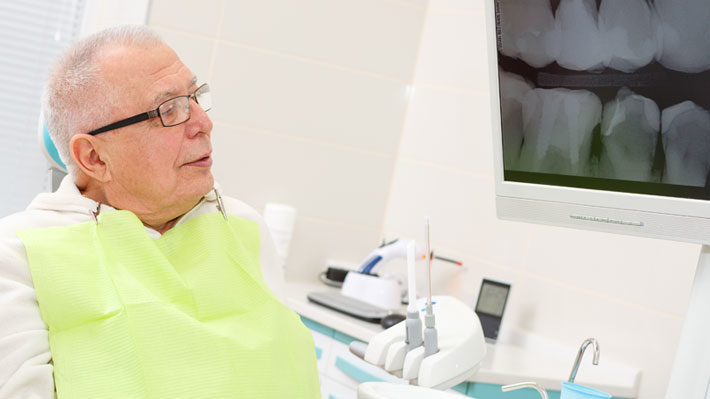
Can Dental Problems Negatively Affect Your Brain Function?
It has been well-established for some time now that proper dental care is inexorably linked to overall bodily health. When tooth decay and infections set in, a whole host of medical complications can result. Now, new studies are revealing that poor oral hygiene may actually have a negative impact on mental health as well. In fact, research suggests that poor dental health may be tied to reduced cognitive function that could include decreased memory capacity and the common symptoms seen in diseases like Alzheimer’s.
Gum Disease and Alzheimer’s
In one joint study by King’s College London and the University of Southampton, researchers discovered that gum disease and cognitive deterioration in Alzheimer’s patients seem to be linked. It is generally accepted that Alzheimer’s disease increases the likelihood that patients become unable to care for their own dental hygiene needs, and that this neglect can cause more bacteria to remain in the mouth and impact other areas of the body.
In a 59-patient study, participants with Alzheimer’s Disease had their inflammation markers measured and compared to dental health, with almost all of the patients reassessed six months later. The researchers discovered that the patients who suffered from gum disease experienced six times the amount of cognitive decline seen in patients with healthy gums. The scientists attributed that increased loss of cognitive function to the inflammatory response brought on by the periodontitis.
The Effect of Tooth Loss on Cognitive Function
Tooth loss appears to be another cognitive function killer. The International and American Associations for Dental Research recently published a review and analysis that examined the impact of tooth loss on cognitive impairment, particularly the loss of cognitive function seen in dementia patients. This review involved ten studies gathered from more than 1,200 published articles from various online medical databases, and another eight studies that were used for analysis.
A systematic review of the gathered evidence suggested that patients who had fewer than twenty teeth experienced a likelihood of cognitive decline and eventual dementia twenty times higher than patients who had not experienced widespread tooth loss.
And that’s only one examination of the evidence. A West Virginia University study demonstrated a connection between tooth loss and the presence of mental health issues that include anxiety and depression.
While some have attributed such phenomena to poor diet and other lifestyle habits, researchers are quick to remind us that there is a bacterium that can cause dementia: Porphyromonas gingivalis. Those bacteria are often seen in patients who fail to exercise good oral hygiene, and can cause the types of infections that stimulate the body’s inflammatory response – inflammation that can cause neuron destruction, memory loss, and other brain-related issues.
At Ebenezer Dental, we know that your teeth and gums are just the frontline in the battle to keep your entire body and mind as healthy as possible. That’s why we work with you to ensure that your oral hygiene regimen and regular dental care routine are designed in a way that protects your teeth and gums – and, in turn, your overall health and wellbeing. Call us today to discover how the best dentist in Midtown Manhattan can help you with your oral health needs.

